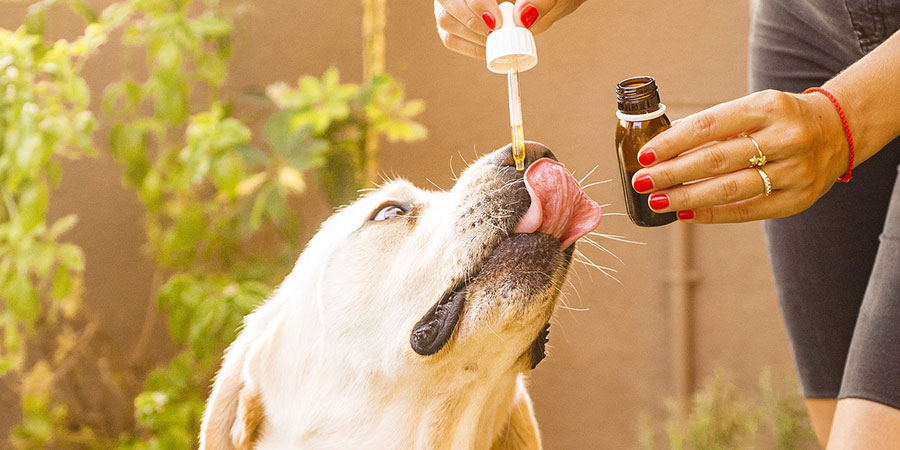CBD’s popularity is surging as a treatment for various health conditions, including its use for pets. Produced naturally by cannabis or hemp plants, Cannabidiol (CBD) is non-psychoactive with numerous medicinal benefits. Veterinary care increasingly incorporates CBD products, but legal sales demand products with no THC traces.
So, how does this all-natural magic aid dogs? Pet lovers seeking answers and insights into CBD’s efficacy will discover valuable information below. Considering exploring the potential benefits of CBD for dogs? Learn more about the Delta 8 pen, a unique and increasingly popular CBD delivery method.
What does CBD do for Dogs?
Like other mammals, dogs also have a regulatory system, the endocannabinoid system (ECS), supported by cannabidiols. The ECS controls appetite, emotion, sleep, the immune system, and pain, among other things. Cannabinoids function by replacing endocannabinoids in the body and connecting to their receptors in the nervous system and the brain.
The bonded complex influences biological activities before being destroyed by enzymes. Cannabinoids help the Dog’s endocannabinoid system promote its health organically.
Understanding the potential benefits of CBD for dogs is crucial for pet owners looking to enhance their furry friend’s well-being. As CBD interacts with the ECS, it may offer relief from various issues such as anxiety, inflammation, and discomfort. While more research is needed, many pet owners report positive outcomes, making CBD a topic of growing interest in the canine health community.
Is it safe to use Cannabinoid products on dogs?
There are different kinds of products from cannabis plants. However, Tetrahydrocannabinol and cannabidiol are the primary substances, and they tend to mimic endocannabinoid functions and bind the CB1 and CB2 receptors.
Cannabinoids contain anti-inflammatory and relaxing qualities in the body. As a result, Cannabidiols in their purest form, with no THC levels, are well accepted for dogs.
When considering the safety of using Cannabinoid products on dogs, it’s crucial to focus on CBD with minimal to no THC. THC, the psychoactive component in cannabis, can be harmful to dogs. Opting for pure Cannabidiol ensures that your furry companion can experience the potential benefits without any psychoactive effects. Always consult with a veterinarian to determine the appropriate dosage and ensure a safe experience for your pet.

In What ways can Cannabidiols help your Dog?
So, how do Cannabidiols function for pets, and why recognize them as a therapy option? Here are the most significant ways cannabidiols can make pets live a healthier life:
Cancer
The cannabinoids effectively induce the death of cancer cells and, at the same time, prevent metastasis. Furthermore, when cannabinoids are used together with the standard drugs used for chemotherapy, it has been found that they reduce how the cancer cell can increase compared to when chemotherapy is lonely used.
Reports from veterinarians have shown that cannabinoids have placed dogs into remission by shrinking their cancer cells.
The potential of Cannabidiols to combat cancer in dogs is a promising avenue in veterinary medicine. Integrating cannabinoids with traditional chemotherapy may offer a more comprehensive approach to treating canine cancer, with some reports indicating positive outcomes and remission. However, it’s essential to consult with a veterinarian to explore the most effective and safe treatment options for your dog’s specific condition.
Canine Arthritis
Cannabidiols have been shown to reduce inflammation and pain in dogs with arthritis, and they were also found to improve mobility and decrease the need for medications. Cannabinoids have anti-inflammatory properties, which can stop the spread of inflammation and pain.
As a result of these properties, you can consider your Dog to have remarkable outcomes in a short period, with no alleged adverse effects.
For dogs suffering from arthritis, the anti-inflammatory and pain-relieving properties of Cannabidiols can significantly enhance their quality of life. Pet owners may witness improved mobility and reduced reliance on medications, providing a more comfortable and active lifestyle for their furry companions.
Other
Cannabinoids have also been beneficial in treating inflammatory bowel illness, boosting bone repair, combating infection, and delaying degenerative myelopathy in laboratory animals. However, these effects have yet to be tested in dogs.
While the potential benefits of cannabinoids extend beyond cancer and arthritis, it’s crucial to note that more research is needed to confirm their effectiveness in treating various conditions in dogs. The current findings in laboratory animals are promising, but thorough studies in dogs are necessary to validate these effects. Always consult with a veterinarian for guidance tailored to your dog’s specific health needs.
Conclusion
The increasing popularity of CBD as a holistic treatment for dogs reflects the growing awareness of its potential benefits in veterinary care. As a non-psychoactive compound derived from the cannabis or hemp plant, Cannabidiol (CBD) offers various medicinal advantages without the mind-altering effects associated with THC. The exploration of CBD’s impact on the endocannabinoid system (ECS) in dogs reveals its potential to address a spectrum of health concerns, from anxiety and inflammation to arthritis and even cancer.
Pet owners considering CBD for their dogs must prioritize products with minimal to no THC to ensure safety. While research on Cannabidiols’ effectiveness in treating specific conditions is ongoing, positive outcomes have been reported, especially in cancer cases where CBD has contributed to remission. As the canine health community delves deeper into the therapeutic potential of CBD, consulting with a veterinarian remains paramount to navigate the appropriate dosage and treatment plans tailored to each dog’s unique needs. Overall, the evolving landscape of CBD for dogs signifies a promising avenue in veterinary medicine, encouraging responsible exploration for enhanced well-being in our cherished canine companions.

